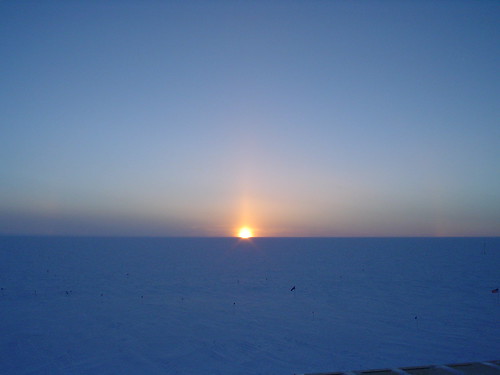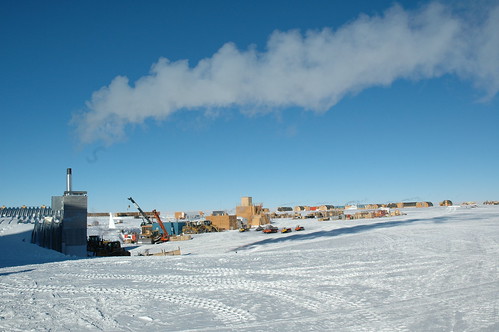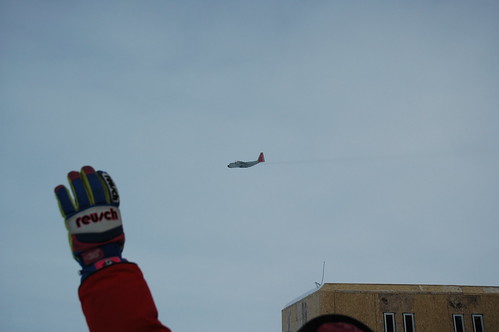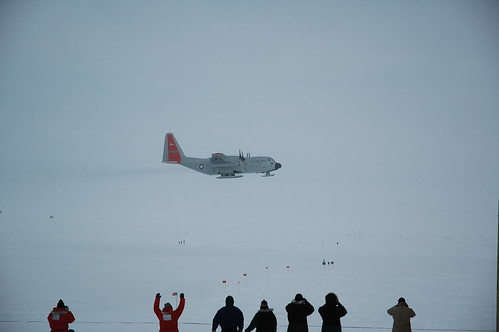Sunset
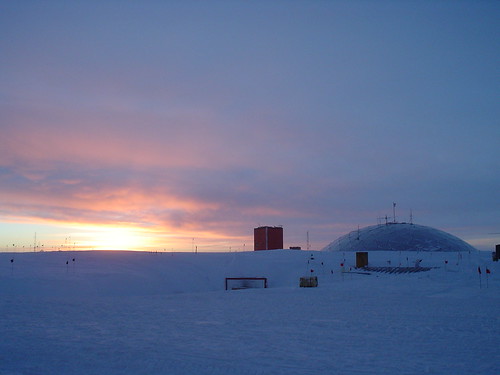
<
Lots of people who have wintered before said that this was the most beautiful sunset they had ever seen at the South Pole. We were extremely lucky to have very clear skies and good visibility on the horizon for the entire week of the most intense colors. There was an absolutely empty sky on the real day the sun set, and on the days following, when an eerie glow was visible swirling around the horizon throughout the day, we had sweeping cloud formations to be lit up with every range of pink, orange, and purple. People could be seen all over the station braving the cold temps just to get pictures of the sky or stand in awe of the sight of a sun setting over such utter barrenness. The color in the sky was a most welcome change to the ever unchanging white and blue we've seen since we landed here over 5 months ago.
The day after the sunset, the sky turned a darker shade of grey than the cloudy days we've been accustomed to, and a storm blew in. We had 25 knot winds for our first sun-less day. It's hard to imagine that when the clouds break, there won't be a sun behind them. In fact, it will be about 6 months before I see the sun again. To a girl who grew up going to the beach every day in the summer, that's a hard concept to grasp. I can't help but wonder what it will do to my spirits and my concept of time. I have become so used to seeing the light of day out the windows at every hour, even when I wake up in the middle of the night, that I can hardly imagine the reverse--waking up and going to work in complete darkness...heading in for lunch in complete darkness.
Through the clouds that have broken just this evening, an eerie greenish sky has appeared, just like the dusk after a sunset at home. The real treat and surprise of the day was an unusually beautiful and luminous full moon, hanging over the station that I first saw on my solo walk to the cryo barn today. It moved over the telescopes later in the day and was absolutely stunning. It felt like a symbol of the beauty to come in the long night, and I started thinking about the auroras that will be here in about a month.
